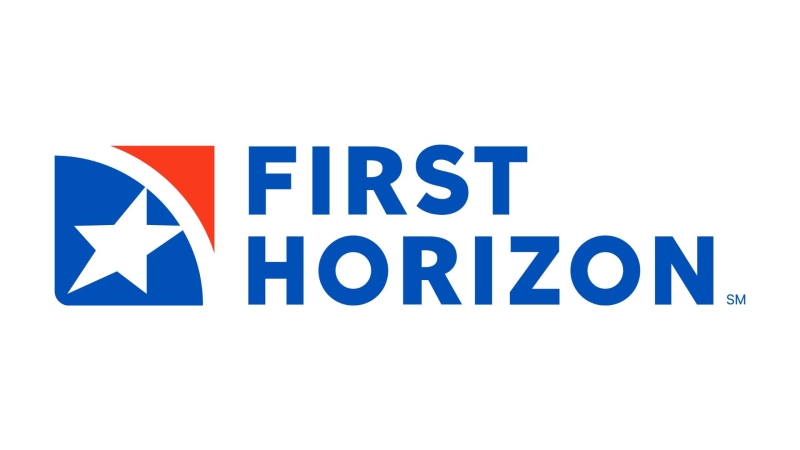Advertisement
Think outside the box: Originating non-mortgage business loans
Foreign nationals: The oldest emerging market Gil Zapataniche marketing, marketing to foreign nationals, globalization
Fortune 500 companies in the larger economies in North America,
Europe and Japan acknowledge that one of the most critical
challenges they face today is globalization. For some time now I
have been writing about emerging markets within the United States
and how they relate to the mortgage industry. How does
globalization affect our industry and how can we take advantage of
this?
Understanding the world
Before you can capture this opportunity, you have to understand
that the capital and financial markets in developing countries are
remarkably unsophisticated. Apart from a few exchanges and capital
sources, there aren't many reliable sources of credit to access
capital. The financial institutions can offer high returns, but
they aren't stable. With the exception of the larger economies such
as Europe and Japan, the rest of the world is not providing
financial stability to their consumers. The United States is far
from perfect, but it's one of the best systems in the world. We are
lucky, but the rest of the world is not. The political, social and
economic instability in many nations has built America since its
inception. I have always said that the United States is a nation of
immigrants that undergoes an assimilation process - from the
British, to the Italians, to the Irish, to the Africans, to the
Hispanics. The only difference today is that the assimilation
process is much more rapid and the mass of assimilators exceeds the
new immigrants and foreigners trying to set foot in this country.
Aside from the immigrants trying to get a foothold, there is
another group entering the marketplace - foreign nationals. The
United States has attracted foreign nationals from all over the
world for various reasons including vacationing, business
opportunities, globalization, immigration ties and a potential
place to live. In addition, with globalization on the minds of many
multinational companies, there is a trend towards relocating
employees and executives to other countries. For instance, the ties
between Latin America and the United States has caused a reciprocal
movement of Americans and Latin Americans being transferred to
create new markets between these two regions. Globalization is
providing an immense opportunity in the mortgage business, yet only
a few companies go after this market aggressively.
Foreign nationals and mortgages
A foreign national borrower is a citizen of another country who may
visit the United States periodically, or live here for an extended
period of time, but is not a U.S. citizen, permanent resident alien
or non-permanent resident alien. There are only a few lenders that
have designed mortgage products to cater to this market. Some of
these institutions include Chase
Manhattan Mortgage, National
Bank of Arizona and Washington
Mutual. But, keep your eyes open because this is a
non-conforming product, and there are many non-conforming lenders
that will launch a foreign national product.
Documentation
When dealing with foreign nationals, you must become familiar with
the world of foreign documentation. I remember reading an article
once that said mortgage brokers are like politicians,
entrepreneurs, salespeople, attorneys and a public relations person
all rolled into one. I find a lot of truth in this. Dealing with
foreign nationals and foreign documentation is almost like being a
diplomat for the United Nations or a U.S. ambassador. First, it all
depends on the country you are dealing with, but most lenders who
are working with foreign nationals require all documents to be
translated into English and U.S. dollars by a disinterested party
or a certified translator. If these documents are provided in the
United States, they will be accepted by the lender. Thus, if these
documents are coming from a foreign country, most lenders will
require that these documents be notarized by the U.S. embassy in
the respective country. I once dealt with a buyer who was in
Colombia, but the closest U.S. embassy was in Bogotá and my
buyer was about three hours away. In another case, I had an
investor for whom I had refinanced 10 properties in the United
States. However, she was in Nicaragua and ended up paying in excess
of $1,500 in fees to have all documents notarized and delivered to
the United States. That was due to a lack of experience on my and
the title's agent part; we should have recommended that she take a
flight into Miami, which would have been cheaper than paying the
U.S. embassy. I have many adventurous stories like these with
countries that I have dealt with in Latin America. In the end it
was a great experience because as a Hispanic who grew up in the
United States, I had a chance to visit most of the countries in
Latin America and began to notice the major differences within
Latin culture. These are some of the challenges you will face. You
will need to become familiar with the transactions, the foreign
national embassies and lender procedures. In addition, most lenders
will require a copy of a valid current passport and a valid visa to
live or visit the United States. For primary residences, the visa
must allow residency for at least 12 months. Some foreign nationals
have a Social Security number and credit, but do not have a legal
permanent status and may be required to sign a W-8 or Certificate
of Foreign Status. If the borrower receives income in the United
States or has a tax identification number, then a W-9 is required.
Many foreign nationals have established companies and have a tax
identification number as well.
Also, the United States is constantly changing foreign policy,
immigration legislation and entry policies. The changes by the U.S.
State Department cause lenders to change their programs according
to these policies. For instance, the State Department has a Web
site, www.state.gov, where there
is a "Visa Waiver Program" section. This list is updated from time
to time so underwriters will need to check the Web site to be sure
that the borrower is not required to have a visa. Most borrowers
who enter the U.S. under the Visa Waiver Program are usually
limited to second homes or investment properties only. For primary
residences, these borrowers are required to provide an acceptable
visa with a minimum 12-month residency. Most European countries are
under the Visa Waiver Program, but there are more than 30 countries
on the list. There are certain countries that are not under the
Visa Waiver Program but their documentation is exceptional; these
countries include Mexico, Canada and Bermuda.
Credit quality
For most loans, an attempt will be made to pull all three credit
bureau reports even for foreign nationals. However, if after the
attempt is made, nothing comes back for the foreign national, most
lenders will require several things: a traditional credit report
with four credit trade lines that are at least 24 months old from
their country of origin, and three trade lines if they have had a
mortgage in the United States. If they had a mortgage in the United
States, you will probably be required to obtain a verification of
mortgage history because it will not appear on their credit report.
These letters of credit will need to be translated into English. In
addition, most lenders will require two original credit reference
letters from a large international or financial institution in the
United States, or from their home country.
Asset requirements
Most lenders will require a two-month seasoning reserve for foreign
nationals. In some cases, there are programs with no asset
requirements. In the event that they do require assets, they need
proof of bank statements from their country translated into English
and converted into U.S. currency. Also, in most cases they require
the assets to be transferred to a U.S. bank. This can be a big
issue because of the exchange rates. When foreigners transfer
money, you need to act in the best interest of your client and know
when the exchange rates are favorable for your client. Otherwise
when they transfer the currency from their country into U.S.
dollars, they may lose money along the way. Last, most lenders will
require a copy of the transfer.
Conclusion
In a short article such as this one, we cannot provide full
coverage of the foreign national marketplace and its relationship
to the mortgage industry. There are other topics and issues to
consider such as how to market to foreign nationals, world
economics, political systems, mortgage products and preparing to
deal with all of the issues in a global marketplace. But if you can
master the system, this market segment can be quite lucrative
because they usually have large sums of assets to invest in the
United States.
Gil Zapata is CEO/managing partner of KGFA Capital Partners LLC in
Miami. He may be reached at (305) 379-4457 or e-mail [email protected].
About the author





